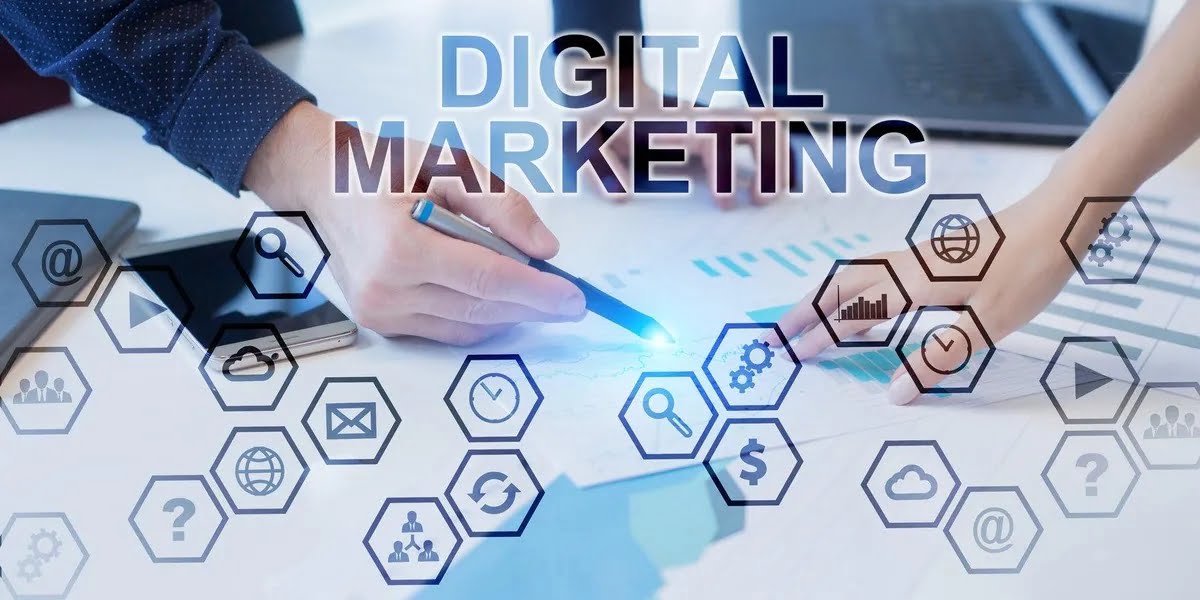
In the fast-paced digital era, the significance of a robust online presence cannot be overstated. Whether you’re a budding entrepreneur, a small business owner, or simply someone looking to enhance their personal brand, mastering the art of digital marketing is key to achieving online success.
Understanding Digital Marketing
Digital marketing involves employing a diverse set of online methods and approaches with the goal of promoting and showcasing products, services, or brands. Unlike traditional marketing, digital marketing leverages the power of the internet and electronic devices to connect with target audiences. It’s a versatile field that includes various channels, such as social media, search engines, email, content marketing, and more.
The Importance of Digital Marketing
In a world where consumers spend a significant amount of time online, digital marketing offers unparalleled opportunities for businesses to reach and engage their target audience. It allows for precise targeting, real-time analytics, and cost-effective campaigns. Whether you’re a startup or an established brand, embracing digital marketing is crucial for staying competitive and relevant.
Key Components of Digital Marketing
- Website Optimization
Your website serves as the digital storefront for your brand. Ensure it is user-friendly, mobile-responsive, and optimized for search engines (SEO). This involves using relevant keywords, creating quality content, and obtaining backlinks from reputable sources.
- Social Media Marketing
Social media platforms such as Facebook, Instagram, Twitter, and LinkedIn serve as formidable instruments for establishing brand visibility and fostering meaningful interactions with your target audience.
- Content Marketing
Create and distribute high-quality content that adds value to your audience. This can include blog posts, articles, videos, infographics, and more. Content marketing not only attracts potential customers but also establishes your brand as an authority in your industry.
- Search Engine Marketing (SEM)
SEM involves paid advertising on search engines like Google. Running targeted ads ensures your brand appears in front of users actively searching for products or services similar to yours. Effective use of keywords and compelling ad copy is essential for success in SEM.
- Search Engine Optimization (SEO)
Search Engine Optimization (SEO) is a strategic process that involves optimizing website content, structure, and coding to improve its visibility on search engine results pages. The goal is to enhance organic (non-paid) search engine rankings, increase website traffic, and ultimately boost online visibility and engagement.
- Email Marketing
Email continues to be a highly intimate and direct means of communication. Cultivate an email list and dispatch tailored messages to foster potential clients and uphold existing customers. The potency of your email campaigns can be markedly amplified through personalization and segmentation.
- Analytics and Data Analysis
Employ analytical tools to assess the effectiveness of your digital marketing initiatives. Monitor essential metrics like online traffic, conversion rates, and social media interaction to gauge performance. Data-driven insights will help you refine your strategy for better results.
Crafting Your Digital Marketing Strategy
- Define Your Goals
Clearly outline your objectives. Whether it’s increasing brand awareness, driving website traffic, or boosting sales, having specific goals will guide your digital marketing efforts.
- Know Your Audience
Understanding your target audience is fundamental to creating relevant and engaging content. Perform a comprehensive market analysis to discern the preferences, actions, and challenges experienced by your target audience.
- Consistent Branding
Maintain a cohesive brand identity across all channels. Consistent branding builds trust and recognition, making it easier for your audience to connect with your brand.
- Quality Over Quantity
Prioritize the creation of top-notch content over generating a high quantity. Valuable content establishes your expertise and encourages audience engagement.
- Adaptability and Evolution
The digital landscape is dynamic, and trends change rapidly. Stay updated with industry trends, be adaptable, and be ready to evolve your strategies accordingly.
Overcoming Common Challenges
- Budget Constraints
You don’t need a massive budget to succeed in digital marketing. Start small, prioritize your efforts, and gradually increase your investment as you see positive results.
- Building a Community
Building a community around your brand takes time and effort. Foster genuine connections with your audience through engagement, responsiveness, and by delivering consistent value.
Digital marketing may seem complex at first, but with the right approach, it becomes a powerful tool for achieving online success. By understanding the key components, crafting a strategic plan, and remaining adaptable, even beginners can navigate the digital marketing landscape successfully.